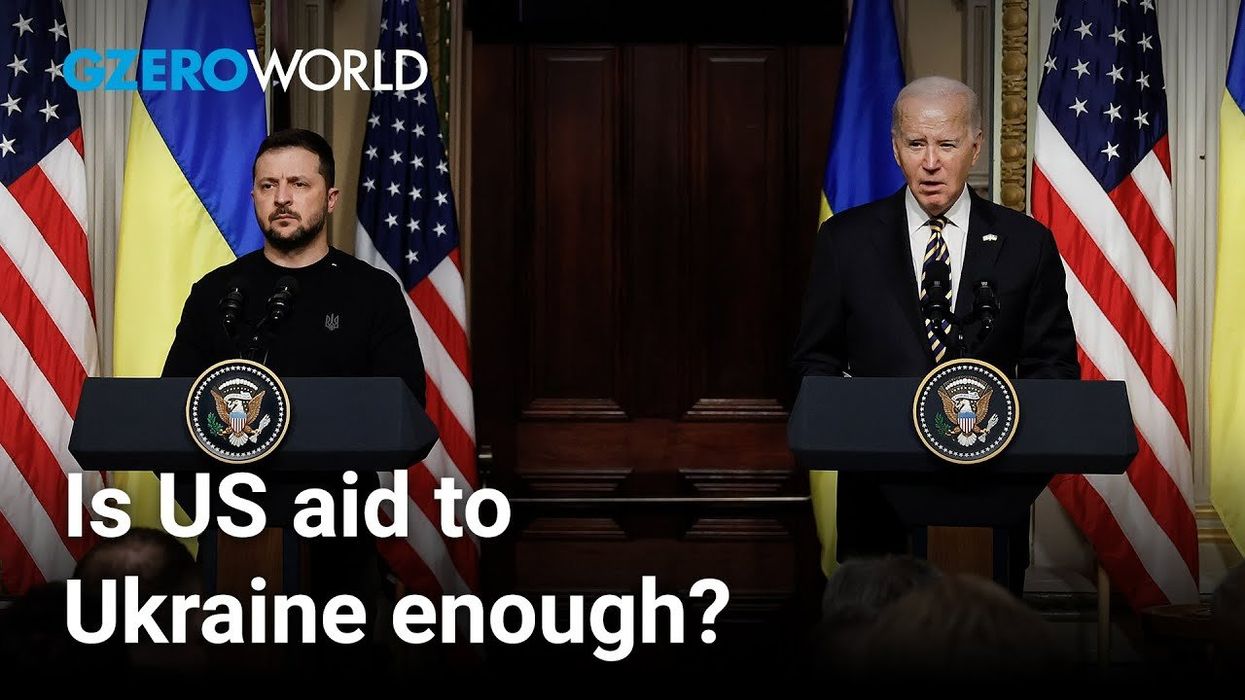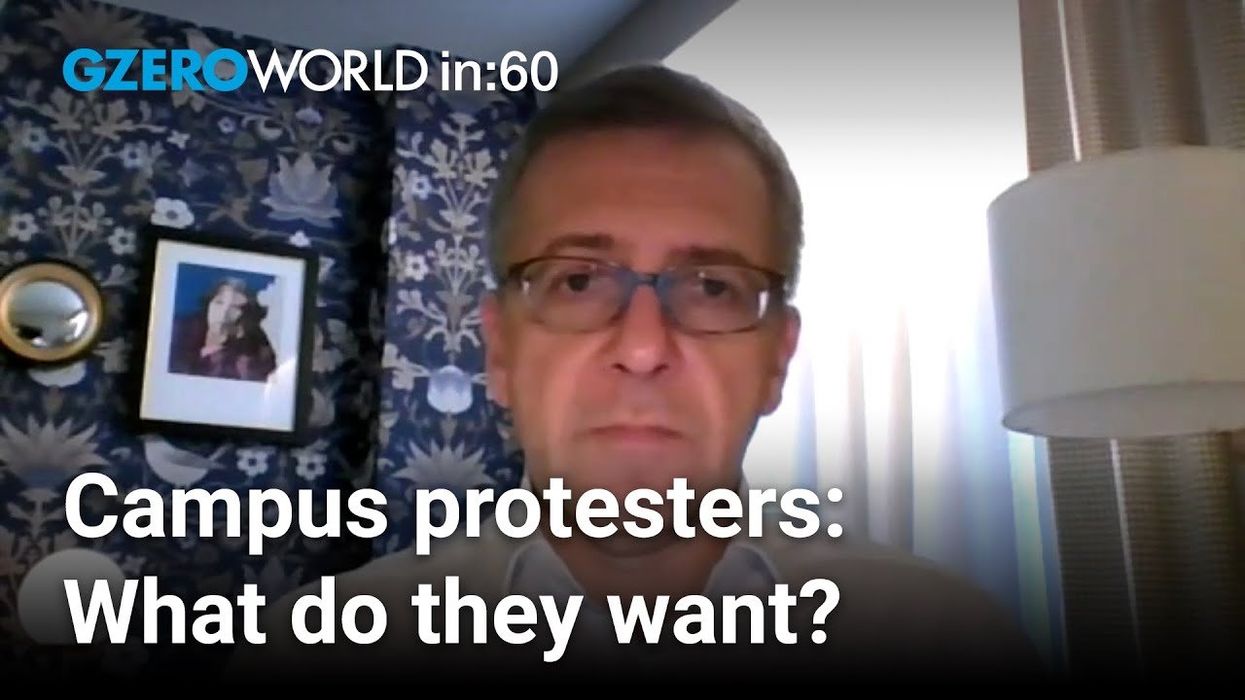Paris Peace Forum
Nobelist Oleksandra Matviichuk on Russia-Ukraine war reshaping world order
"Everything which we call normal life was ruined," said Ukrainian Oleksandra Matviichuk, head of the Center for Civil Liberties and 2022 Nobel Peace Prize laureate, during a GZERO Global Stage discussion at the 7th annual Paris Peace Forum.
Nov 13, 2024










